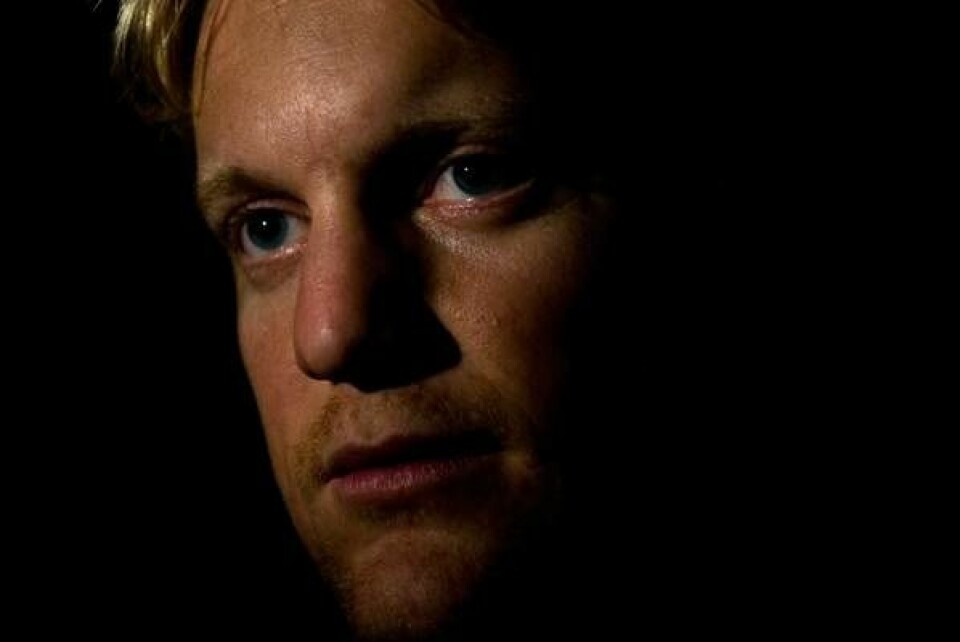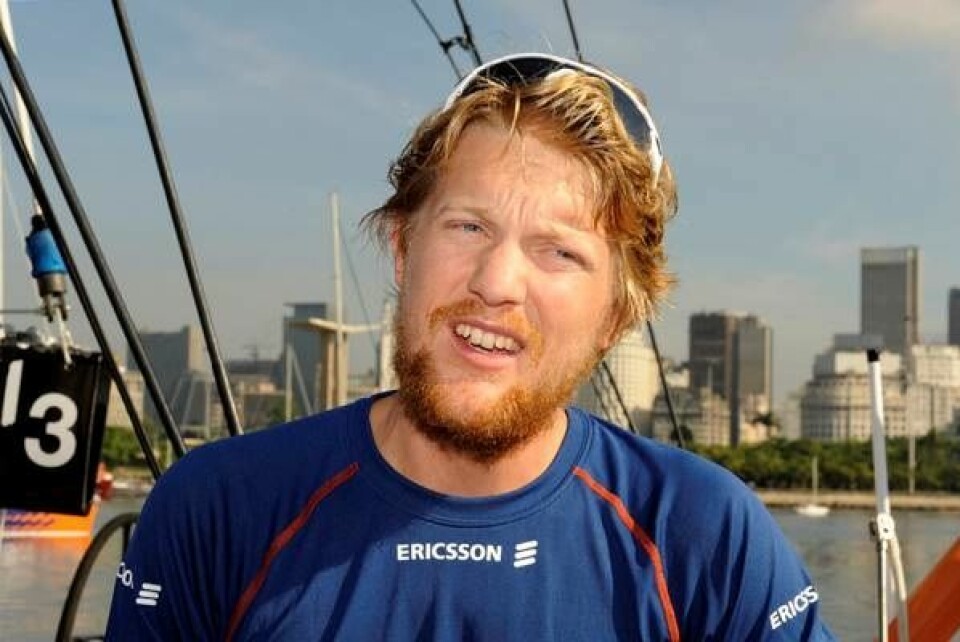Magdahl er stjernen i Rio
Aftenposten er ikke den eneste som ha fått med seg at Aksel Magdahl er den store stjernen på navigasjonshimmelen etter femte etappe i Volvo Ocean Race.
Aksel Magdahl er A-sportens intervjuobjekt påskeaften, men Aftenposten er ikke alene om å erkjenne at Tønsberg-gutten nå har hatt sitt internasjonale gjennombrudd som navigatør i eliteklassen.
Her er et intervju med Aksel på Volvo Ocean Race egen hjemmeside idag, og vi håper leserne denne gangen vil tilgi oss at vi gjengir intervjuet på engelsk:
By Riath Al-Samarrai:
Aksel Magdahl sits down and takes a deep breath. "I got some rest," he says. "But it's been a bit crazy. Too much talk."
A smile spreads across his face. "It's been nice, but a bit much. It wasn't a very big decision."
Observers of the race might regard what happened on March 4 a little differently. When Ericsson 3 sharply changed course after passing the scoring gate at 36 degrees south, choosing to head north-east rather than dive to the higher latitudes, Magdahl broke the standard conventions of Southern Ocean sailing. No one else did.
"The main Danish sailing website said it was an ‘amateurish choice of route'," Magdahl recalls. "Some of the crew had emails from their wives saying the reaction (from the press) said we had a drunk navigator."
They were not in the minority.
Magdahl raises his eyebrows and smiles. Ericsson 3 went on to claim the most improbable of victories in leg five and two hours after docking the Norwegian was on a plane, only returning today.
"Needed a holiday," he says. His crew-mates talk of a 30-year-old who sometimes goes a couple of days without sleep, constantly pouring over data. The 44-day trip from Taiwan, via a two-hour stop in China, left him drained, causing him to miss the in-port race in favour of a nine-day return to Scandinavia.
"I've been back home twice in two years," he says. "This race is very hard. Just nice to get back, be with my girlfriend, walk the dog, see some friends."
It didn't quite work out that way. He spent five days in Stockholm and four in Norway, but each day he dealt with the media, both domestic and international, for about two hours.
"A lot of interviews," he says. "But I guess it's quite nice."
The last sentence might seem like an understatement, but Magdahl gives the impression that the fuss is somewhat out of proportion.
"In hindsight it was a big call," he says. "But it has been talked about too much. The forecasts remained pretty consistent, that was the most important thing. It did not look a very risky option.
"I think we do these decisions all the time. This decision was more visual, it was obvious we were doing something different.
"It was not a big risk."
Even so, it wasn't easy on the crew. The move, made after "18 to 24 hours" of thought, led Ericsson 3 into the heart of a low pressure system and required brilliant execution to consolidate the lead and, more significantly, prevent the boat from breaking. It left little room for error and placed a lot of pressure on the crew.
When Magdahl talks about the move, two things become apparent in his personality. Most obvious is his self confidence, manifested in this case by an "80%" certainty that the call was right.
If he feels he is right, then he commits without doubt, which is interesting when you consider he operates almost autonomously. Through the course of this race Magdahl has operated under two skippers - first Anders Lewander and now Magnus Olsson - and in both configurations, Magdahl estimates he takes "90%" of the strategic responsibility. It's easy to assume that increases the pressure on performance, though Magdahl, cool as the proverbial Nordic, says: "There is a lot of pressure but I do not feel it. The results have been good."
With such self-belief, he expects the rest of the crew to share his conviction. It almost always happens, but there are exceptions.
"You have to be confident and you have to have the confidence of the crew," he says. "I get very frustrated when the crew want you to do something that proves to be wrong later. That's happened a couple of times in the race but very small situations. That's devastating. I've had that probably three times. They can't just trust me when they want because then I am not in control.
"I want to win this. If I know that we are giving away three miles that we didn't have to then that really hurts. I think I can be quite harsh (in making his argument) when I'm certain."
It adds up to a second interesting character trait: the way he pushes the team to achieve the optimum potential of his targets. In real terms it can mean dragging a tired crew to their limits to achieve the results flashing up on his screen.
"I am always very straightforward and direct," he says. "I go on deck and I don't start by saying ‘oh, how is it looking? Have you thought Code Zero?' I go on deck and say ‘Code Zero' because I have seen the data." He studied economics and is fascinated by computers so the methodical approach is understandable. But it's not always easy on his crew-mates.
"I think he is a very, very good navigator, a very clever guy," one said. "But sometimes he doesn't understand that for the guys on deck it is not like the data game. You shouldn't push the guys too hard."
He has apparently mellowed in the approach since the start of the race, and is popular among his crew-mates. But his determination to win shapes much of his onboard personality, a character that appears at odds with the courteous and softly spoken figure on land. It is not something that concerns Magdahl. "It is more important to me to push things through than smile and be nice to the guys," he says.
The net result is a winning team and a load of interviews.
























